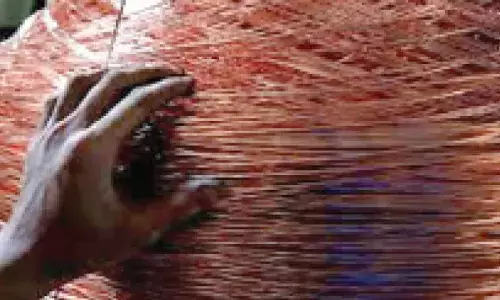Mental health awareness: What are visual hallucinations?

Dr C Veerender, Counselling Psychologist, talks about visual hallucinations and their treatment
"A lady of age 32, who has been married for 10 years and has children, recently visited her in-laws along with her husband. Over the past six months, all family members have noticed significant changes in her behaviour. She engages in odd and erratic behaviour, such as talking to herself and shouting with offensive language. This situation has caused considerable disturbance for the family. Previously, she was fine and well-adjusted.
Despite their efforts, including seeking help from spiritual healers known as 'bhhotha vaidhyulu' and performing rituals to various deities and goddesses in the village, her condition has not improved. The family is feeling quite helpless and desperate. They are unsure how to address her behaviour, and the situation has led them to consider extreme measures, such as contemplating a second marriage for their son.
It's a challenging situation, and the family is struggling to find a solution.
After interacting with her and discussing her childhood and adolescent experiences, it was revealed that she began experiencing disturbances at the age of 18 due to challenging situations she had gone through. Our team conducted assessments and engaged in discussions with her parents and husband. As a result, we concluded that she was suffering from visual and auditory hallucinations along with depression; she had been seeing people and listening to some voices continuously for six months.
We advised them to consult a psychiatrist and recommended therapy as a subsequent step. Within three months, her health condition underwent drastic improvements. She started taking proper care of her children and family. Her conversations became more coherent, and her ability to focus and maintain attention improved significantly.
What are these visual hallucinations? Hallucinations are defined as the perception of an object or event (in any of the five senses) without an external stimulus.
How to overcome from it
The Diagnostic and Statistical Manual of Mental Disorders, Fourth Edition (DSM-IV) lists hallucinations as a primary diagnostic criterion for various psychotic disorders (including schizophrenia and schizoaffective disorder). When they present with psychotic features, while the majority of hallucinations reported in primary psychotic disorders are auditory, they may also be visual, olfactory, tactile, or gustatory.
1. Medical treatment: Consult a psychiatrist or medical doctor to determine the underlying cause of the hallucinations.
2. Therapist support: Cognitive Behavioral Therapy (CBT) and other forms of psychotherapy can be beneficial. CBT can help you identify and challenge distorted thoughts and beliefs contributing to hallucinations. It can also provide coping strategies for managing distressing symptoms.
3. Lifestyle: These include regular exercise, maintaining a balanced diet, prioritizing sleep, and avoiding substances that can exacerbate hallucinations (such as alcohol or recreational drugs).
(Email your concerns: [email protected] and hansmarathonhyd@gmail. com, Phone Number: 9390771469, www.younme.co)








